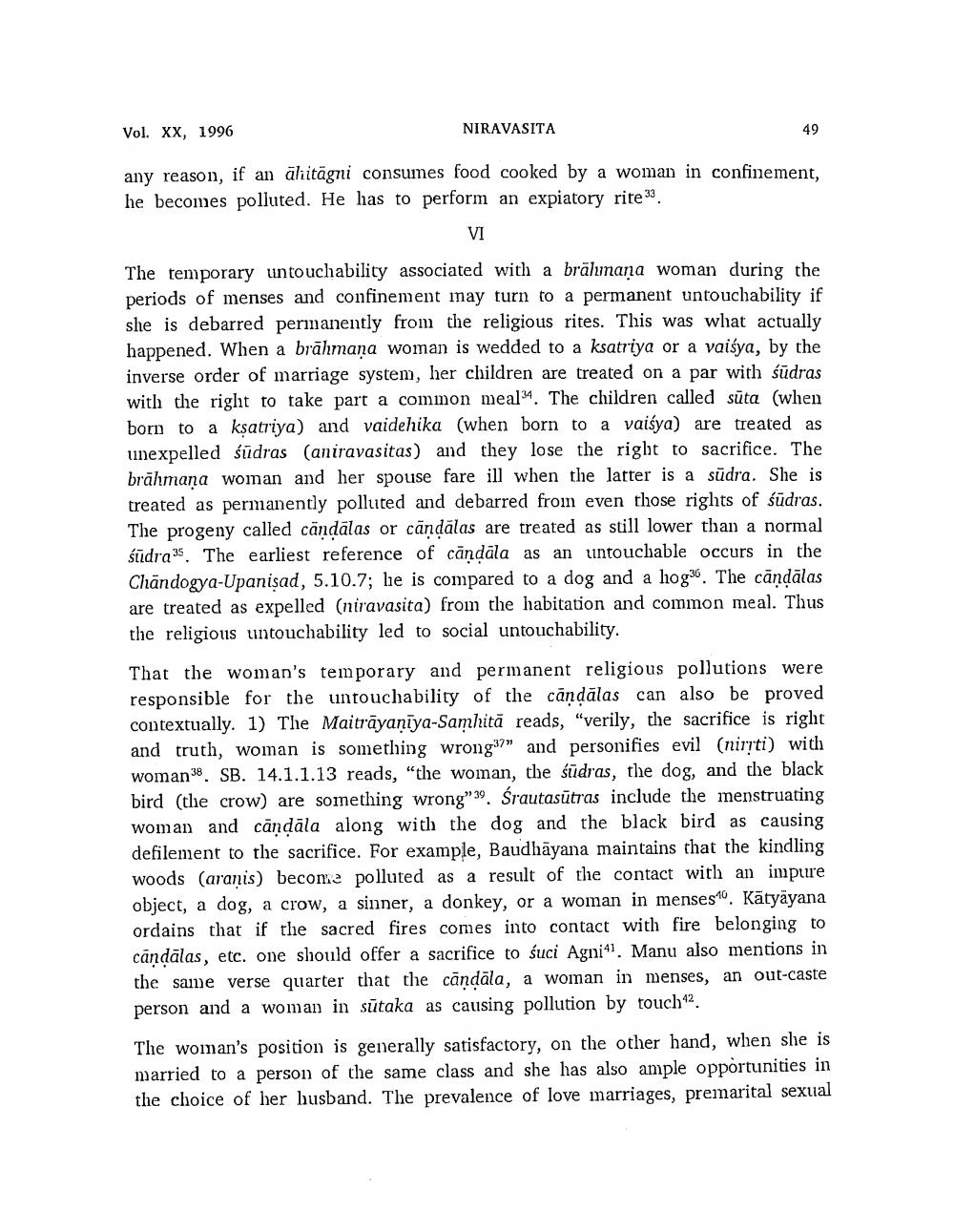________________
NIRAVASITA
49
Vol. XX, 1996
any reason, if an ähitagni consumes food cooked by a woman in confinement, he becomes polluted. He has to perform an expiatory rite",
VI
The temporary untouchability associated with a brälunaṇa woman during the periods of menses and confinement may turn to a permanent untouchability if she is debarred permanently from the religious rites. This was what actually happened. When a brähmana woman is wedded to a ksatriya or a vaisya, by the inverse order of marriage system, her children are treated on a par with sudras with the right to take part a common meal34. The children called sūta (when born to a ksatriya) and vaidehika (when born to a vaisya) are treated as unexpelled fudras (antravasitas) and they lose the right to sacrifice. The brāhmaṇa woman and her spouse fare ill when the latter is a sudra. She is treated as permanently polluted and debarred from even those rights of sudras. The progeny called candalas or cändalas are treated as still lower than a normal sudra". The earliest reference of candála as an untouchable occurs in the Chandogya-Upanisad, 5.10.7; he is compared to a dog and a hog. The candalas are treated as expelled (niravasita) from the habitation and common meal. Thus the religious untouchability led to social untouchability.
That the woman's temporary and permanent religious pollutions were responsible for the untouchability of the canḍālas can also be proved contextually. 1) The Maitrayaniya-Samhita reads, "verily, the sacrifice is right and truth, woman is something wrong and personifies evil (niryti) with woman. SB. 14.1.1.13 reads, "the woman, the südras, the dog, and the black bird (the crow) are something wrong"". Srautasutras include the menstruating woman and canḍāla along with the dog and the black bird as causing defilement to the sacrifice. For example, Baudhayana maintains that the kindling woods (aranis) become polluted as a result of the contact with an impure object, a dog, a crow, a sinner, a donkey, or a woman in menses. Kätyäyana ordains that if the sacred fires comes into contact with fire belonging to caṇḍālas, etc. one should offer a sacrifice to suci Agni41. Manu also mentions in the same verse quarter that the canḍāla, a woman in menses, an out-caste person and a woman in sutaka as causing pollution by touch42.
The woman's position is generally satisfactory, on the other hand, when she is married to a person of the same class and she has also ample opportunities in the choice of her husband. The prevalence of love marriages, premarital sexual




